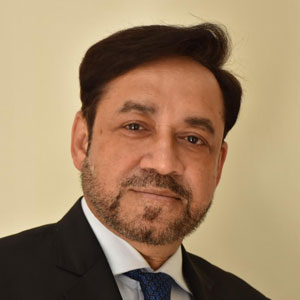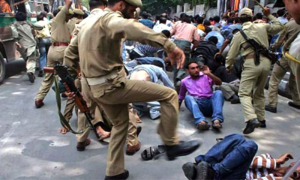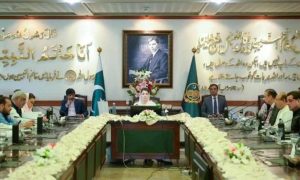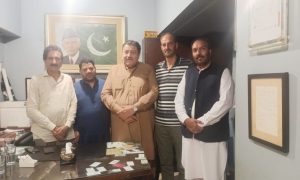“I love Caesar, but I love Rome more than Caesar,” underscores a perennial truth: the sacrifice of loyalty for expedience is a tool often wielded by opportunists. This painful reality, the betrayal for personal gain, resonates ominously across the ages, a constant reminder of the ruthless dance of power – ‘The King is dead, long live the King’.
Even after centuries, the narrative of “national interest” in developing countries remains a veil for oppression. The ‘doctrine of necessity’ persists, burdening the people. This reminds us of the first spark of the few earlier revolutions, ignited by the collective outcry: “Not my country, your country – you rule, you enjoy, and we suffer”- a potent declaration underlining the universal struggle for equality and justice against the forces of dominion- ‘in our part the ruling elite’.
Though democracy offers a model for succession, grace is often missing. Consider Alexander the Great’s victory at the Battle of Hydaspes in 326 BC. After suffering heavy casualties, he asked the defeated King Porus, “How would you like to be treated?” Porus’ solemn response, “Treat me as a king ought,” contained all he desired; dignity restored his sovereignty.
In our nation’s most trying times, the police force teeters on the precipice of a tarnished legacy. The distressing acts of dragging the disabled and mistreating women etch deep wounds. While such malice may be prevalent in the feudal regions of Punjab and Sindh, its realization in the tribal areas of KP and Balochistan remains an implausible phenomenon, obscured by the intricacies of a complex and unique socio-cultural landscape.
The absence of leadership and dwindling service pride perplexes us-“Power corrupts,” serving as a stark reminder of the troubling realities we confront.
Miscreants must undoubtedly face justice but with due process, and the dignity of the innocent and the bystanders should never be compromised. The omnipresent eyes of social media and the internet have laid our actions bare for all to scrutinize. The erstwhile ‘free call’ privilege for detainees has faded into obsolescence, replaced by a more disquieting reality: homes violated under cover of night, unlawful searches, arbitrary arrests, and detentions. These extrajudicial actions, once exceptions, now lurk in the shadows as haunting norms.
Law enforcement is an arduous task, and the true measure of a police officer is revealed in challenging situations, ‘Right man for the right place’ can save the day-otherwise during those moments when they wield an iron rod, the feeble opponent stands helpless and trembling. The moral test arises: should they uphold the law or succumb to the allure of exercising immense power? Sadly, many are swayed by the tide, but only a few withstand the litmus test.
In the sphere of leadership, failure emerges when the foundational principle of respecting every individual’s self-respect diminishes. “Learn to be gentle with the gentle and tough with the tough while adhering to the law and governing rules”. Regrettably, power often becomes a breeding ground for vengeance, hate, and the suppression of dissent. This lamentable reality has unwisely extended to law enforcement leadership, straying from its key role in nurturing unity, empathy, and fairness.
Our collective memory is short-lived. Amidst significant events like Zulfikar Bhutto’s judicial murder, we overlook the fates of four police officers – Mian Mohammad Abbas, Director of Intelligence and Operations, Inspector Sufi Ghulam Mustafa, Sub-Inspector Arshad Iqbal, and ASI Rana Iftikhar of Federal Security Force, who were also sentenced to death- Their own DG Masood Mahmood, driven by self-preservation, abandoned his position to become an approver, subsequently exile and died aboard.
In the wake of Benazir Bhutto’s assassination, two senior officials faced an unending trial. Not to forget, there were others who had faced retribution and were convicted on different charges.
The crackdown on adversaries, aided by the police and administration, is a recurring phenomenon, not new to our history. Infamous instances at Attock and Lahore Fort in the 80s and 90s bear witness to the inhumane treatment. Allegedly many lost their lives under mysterious circumstances, leaving no trace behind.
It may not be an exaggeration that no government had been gentle with the opposition. Whatever we are reaping today, we had sowed yesterday, and probably others will also bear the same fate tomorrow unless someone breaks this cycle.
Power comes with a huge responsibility and associated accountability. The police should perform their duty prescribing to the Constitution and governing laws and strive to bring sanity and shield all from the wrath of history. It is essential to bear in mind that police officers take an oath to uphold justice and the rule of law.
The burdens of police leadership, driven by a lust for power and desires for authority, reflect the “Iron Law of Oligarchy” theory proposed by Robert Michels, which cautions that even in democratic organizations, power can become concentrated among a few individuals for their self-interest. Conversely, police officers must recognize the pitfalls, realize nobody stays forever, and transcend personal ambitions to restore integrity and prioritize the well-being of society, or else the mediocre will all be at their best.
The extra-judicial measures may earn a temporary respite, but the effects are catastrophic. From the ashes of one killing are rising hundred more. The sooner we understand, the better it will be.
We must contemplate what legacy we are leaving for our children. Do we want them to inherit a country ranked 129th out of 140 in justice and 140th out of 180 in corruption? Or do we dream of them experiencing the wonders of a modern nation while remaining in their motherland? There should be no fear in standing up for the just principles. The sky will not fall.
Tailpiece: Each year, approximately fifty thousand take the competitive exam for Civil services in Pakistan; only a couple of hundred pass, and dozens or so join the police group. They should indeed take pride in going through the extreme selection process. Institutions must carve more diamonds in them than joining the bandwagon. They should stand as radiant beacons of inspiration, defying mediocrity in a world hungry for excellence.
“Allah commands justice, the doing of good, and liberality to kith and kin, and He forbids all shameful deeds, and injustice and rebellion: He instructs you, that ye may receive admonition.” (Quran 16:90)























